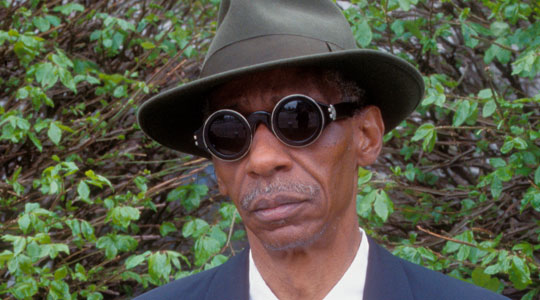Roscoe Mitchell
[US]

The Chicago-born multi-instrumentalist Roscoe Mitchell was a founder of the influential Art Ensemble of Chicago and one of the first members of the Association for the Advancement of Creative Musicians. His name is among the most legendary in avant-garde jazz, free jazz, and contemporary music.
Mitchell began playing clarinet and saxophone in his early teens, and was introduced to jazz during adolescence by his brother Norman. While a member of the U.S. Army, he was stationed in Heidelberg, Germany, where he played in a band together with fellow saxophonists Albert Ayler and Rubin Cooper and also took lessons with the first clarinetist of the Heidelberg Symphony. Upon returning to the Chicago area in 1961, Mitchell began playing bop with bassist Malachi Favors and saxophonist Anthony Braxton, and also began listening to jazz innovators John Coltrane and Ornette Coleman. He studied with the pianist and composer Muhal Richard Abrams and was invited to play in Abrams’s Experimental Band, which was dedicated to pushing beyond the limits of conventional jazz improvisation and composition. Abrams went on to establish the AACP, which was devoted to the same principles, together with pianist Jodie Christian, drummer Steve McCall, and composer Phil Cohran; Mitchell was one of the first to join in 1965. Mitchell formed a sextet with Lester Bowie (trumpet), Kalaparusha Maurice McIntyre (tenor saxophone), Favors (bass), Lester Lashley (trombone), and Alvin Fielder (drums), and it was one of the first AACP groups to record. Its LP Sound took a groundbreaking approach to jazz improvisation with its alternation between sound and silence and through an unorthodox integration of spontaneous collective improvisation, toy instruments & bicycle horns, and non-musical noise. The group went on to perform as the Roscoe Mitchell Art Ensemble and then eventually as The Art Ensemble of Chicago, which would arguably become the most innovative and celebrated jazz band of the 1960s and 70s.
In the 1970s and 80s, Mitchell continued fruitful work with Art Ensemble and the AACP, and a was prolific bandleader in several other contexts and musical formations. He went on to experiment using the languages of contemporary classical music, forming collaborations with composers like Pauline Oliveros, Thomas Buckner, and Borah Bergman. His productivity as a bandleader, ensemble musician, and solo musician continues to this day, and countless recordings and iconoclastic collaborations bear witness. In 2007, Mitchell was named Darius Milhaud Chair of Composition at Mills College in Oakland, California. At CTM he will perform with George Lewis using Lewis’s famous Voyager AI-improvisation system.


